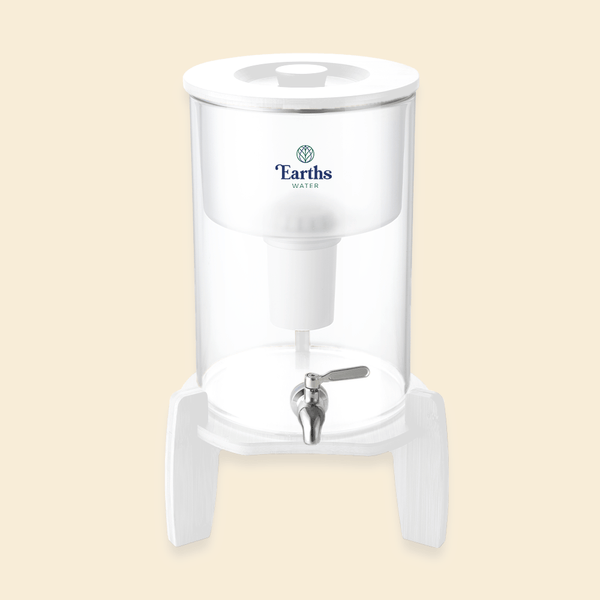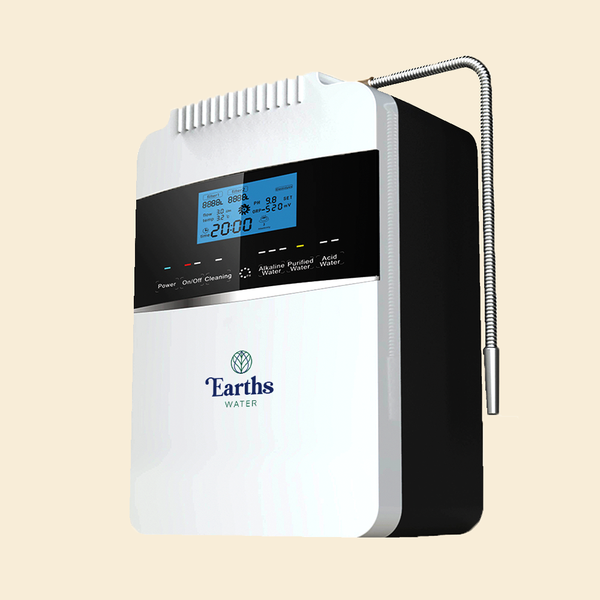
You drink water. You have a reusable water bottle. You try to stay on top of things. And yet, somehow, you still feel tired and dizzy by mid-afternoon. You blame it on “not enough sleep” or “too much screen time”, but what might surprise you is just how many of your seemingly normal, everyday habits are quietly working against your hydration goals.
And when you’re dehydrated, it doesn’t just show up as thirst, cracked lips, sweating in the sun, or desperate gulps after a workout. In fact, many people walk around mildly dehydrated without even realising it—because it’s often caused by what you don’t notice.
So before you blame other things for leaving you parched, let’s take a look at the daily habits that could be secretly drying you out, and how to stay hydrated with a few small tweaks.
Starting Your Day Without Water

We know—coffee first, right? But skipping water after waking up is one of the most common habits that cause dehydration.
Your body loses fluids overnight through breathing and sweat. So when you wake up, you’re already running on empty. Going straight for caffeine (which is mildly diuretic) without topping up your tank just worsens things.
How to Fix It: Keep a glass of filtered water by your bed and drink it before anything else. Bonus points if it’s room temperature—it’s gentler on your gut and easier to absorb.
Why filtered water? It’s free from chlorine and heavy metals, making it easier on your stomach and more pleasant to drink first thing in the morning.
Drinking Too Much Caffeine

Caffeine acts as a diuretic, which means it can increase the need to urinate—causing more fluid loss than gain. A cup or two a day is fine for most people, but if your keep-cup is constantly refilled, your body may be losing more water than it’s taking in.
The Mayo Clinic notes that consuming more than 400mg of caffeine per day (around 4 cups of brewed coffee) can lead to restlessness, insomnia, and—you guessed it—dehydration.
How to Fix It: Match every coffee with a glass of filtered water to keep your fluid balance in check.
Skipping Meals
Food actually contributes a surprising amount to your daily fluid intake—especially fruits, veggies, soups, and grains. So when you skip meals, you’re not just missing nutrients. You’re missing water too. Over time, signs of dehydration will begin to show, especially if your water intake isn’t high to begin with.

How to Fix It: Keep easy, hydrating snacks on hand—like watermelon, cucumbers, or a small smoothie. And make sure you’re drinking filtered water regularly between meals.
Ignoring Thirst
This one seems obvious, but a lot of us just… forget to drink. We’re distracted, busy, or assume we’ll drink later. But thirst is your body’s way of waving a red flag that it’s running low (you’re already mildly dehydrated).

How to Fix It: Try habit-stacking: drink water every time you check your email, finish a task, or before each meal. Set reminders if needed—you won’t need them forever.
Sitting in Air Conditioning All Day
Office life or home heating/cooling can lead to a dehydrating environment. AC strips moisture from the air and your body. In fact, according to a study, you may not sweat, but low humidity environments can still lead to gradual fluid loss through your skin and breath.

How to Fix It: Keep a glass of filtered water or a reusable bottle like Earths Water’s Ultra Water Filter Bottle within reach at your desk. Your skin will love it, too.
Forgetting to Hydrate During Workouts

Even a light walk can lead to water loss through sweat. And when you sweat—even if you don’t feel particularly drenched—you lose water and electrolytes that need replenishing. But if you’re doing a HIIT session or spending time outdoors without hydrating correctly, you’re putting unnecessary strain on your body.
It’s also recommended to increase fluid intake before, during, and after exercise.
How to Fix It:
-
Sip small amounts of water throughout your workout. After you’ve cooled down, top up with filtered water to rehydrate more effectively.
-
Use filtered water to avoid chlorine, which can be harsh on your gut when you’re already feeling drained. It helps reduce the chemical load on your system post-exercise. You’re sweating out toxins, so no need to add more back in!
Drinking Alcohol (Even in Moderation)

Alcohol is another diuretic, meaning it pulls water from your system and leaves you feeling dry. Even a glass of wine or beer can contribute to fluid loss, especially if you’re not counterbalancing it with water.
How to Fix It: Follow the one-for-one rule: alternate alcoholic drinks with water, and aim for a big glass of filtered water before bed to reduce that dreaded morning-after dryness.
Earths Water Filters for Better Hydration
Sure, staying hydrated is about how much you drink. But it’s also about what you drink. And when you’re already drinking less water than you should, every sip counts. Using a high-quality water filter like Earths Water ensures that your water is free from contaminants like chlorine, lead, and microplastics—without removing the good stuff like magnesium and calcium.
Filtered water not only tastes better (so you’re more likely to drink it), but it’s also more bioavailable, meaning your body can absorb and use it more efficiently.
If you’re one of the busy folks and looking for ways to improve your hydration, check out our related blog post and be guided on your journey to better hydration.

Stay on Top of Your Hydration Game
Most of these habits are so routine, we don’t even notice they’re draining us. But once you do, it’s easy to course-correct.
Start with one or two swaps: water before coffee, a jug on your desk, filtered water in your bottle. Then watch the difference it makes—more energy, better focus, even happier skin.
If you’re ready to take your hydration seriously, we’ve got filters to suit every lifestyle—whether you’re working from home, constantly on the go, or just tired of your tap water tasting like the swimming pool. Check our full range here.









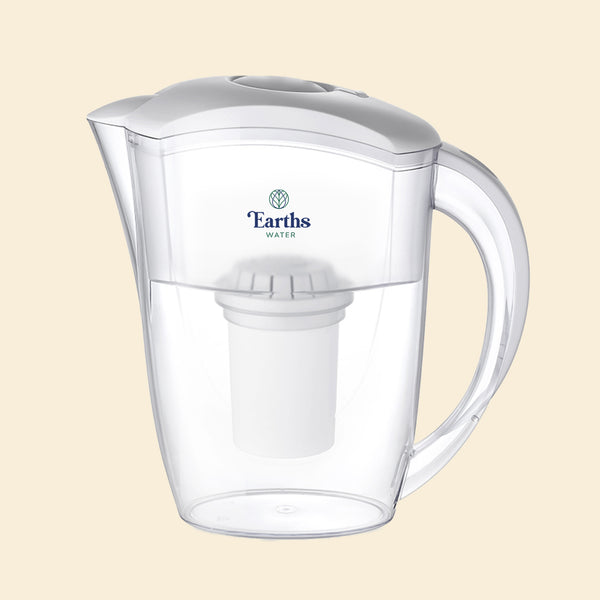
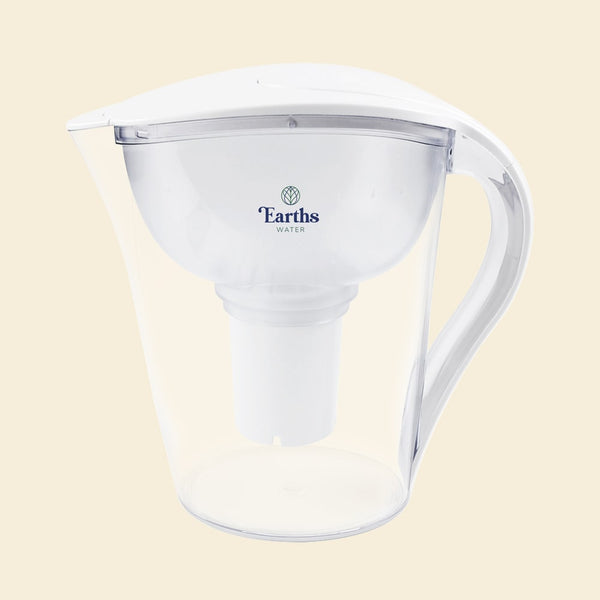
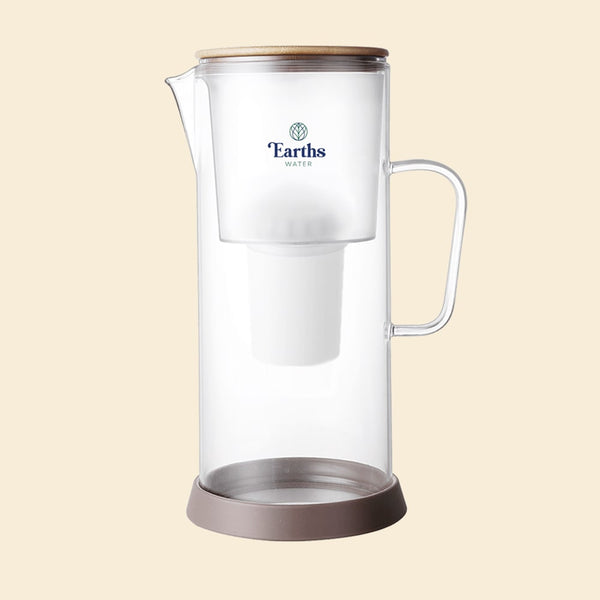
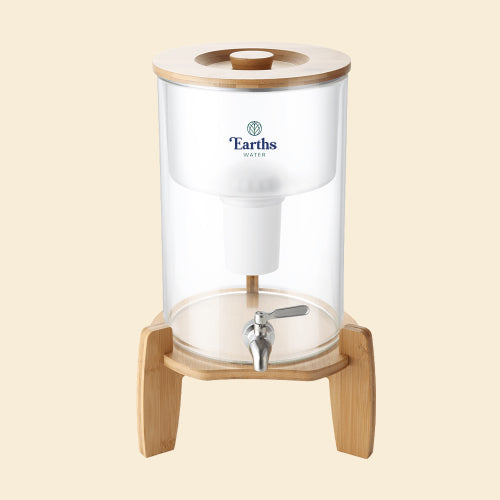
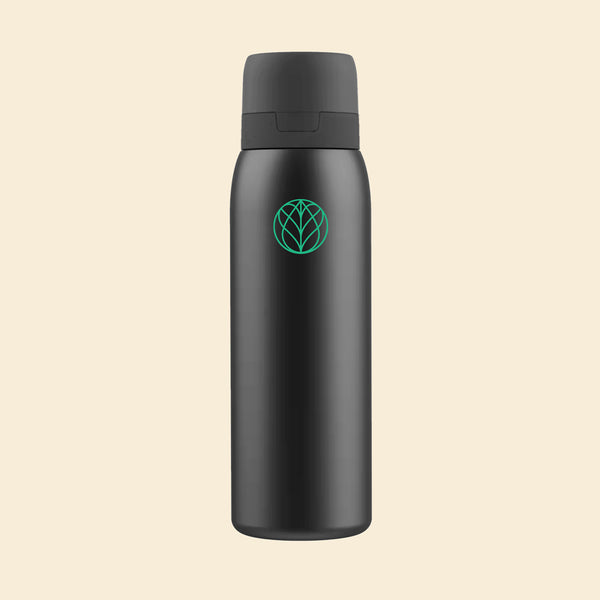
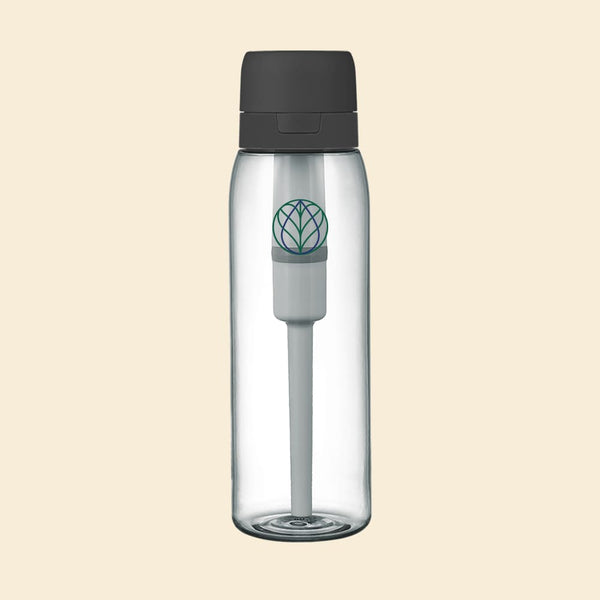
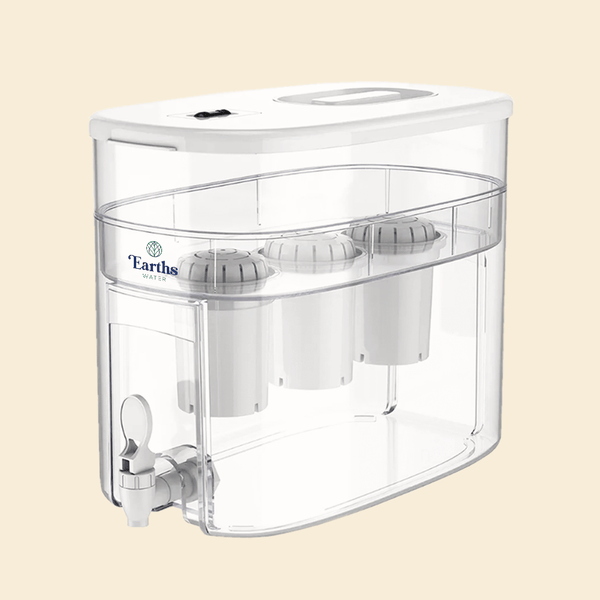
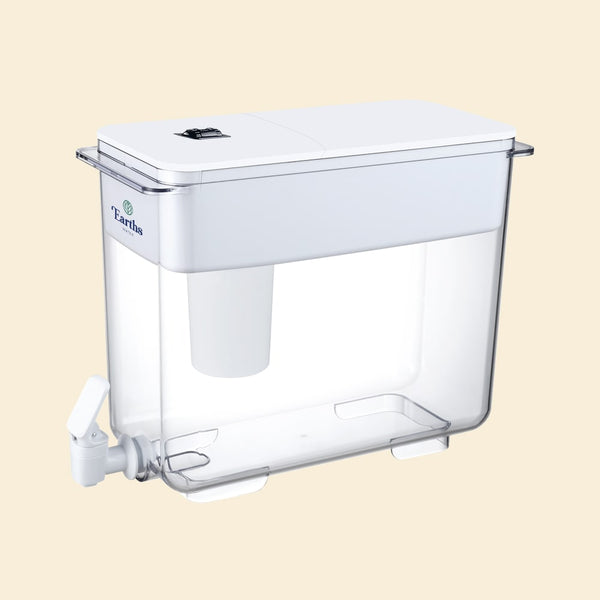
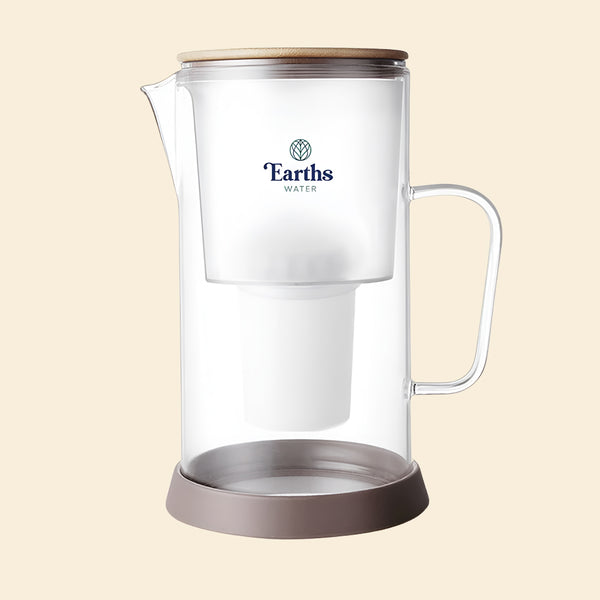
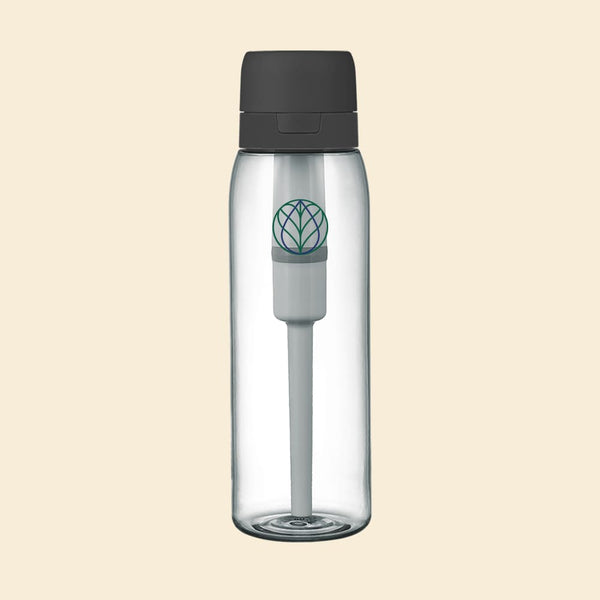
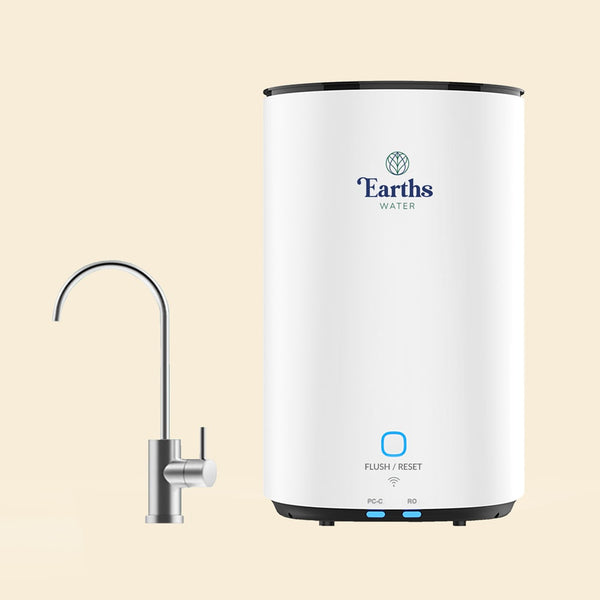
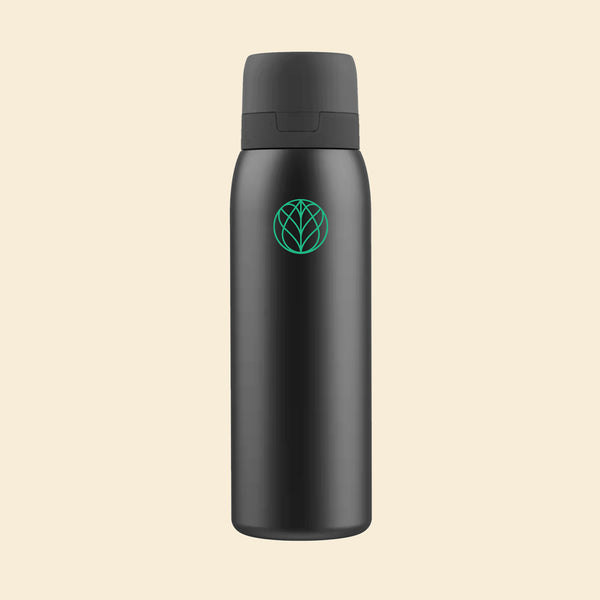
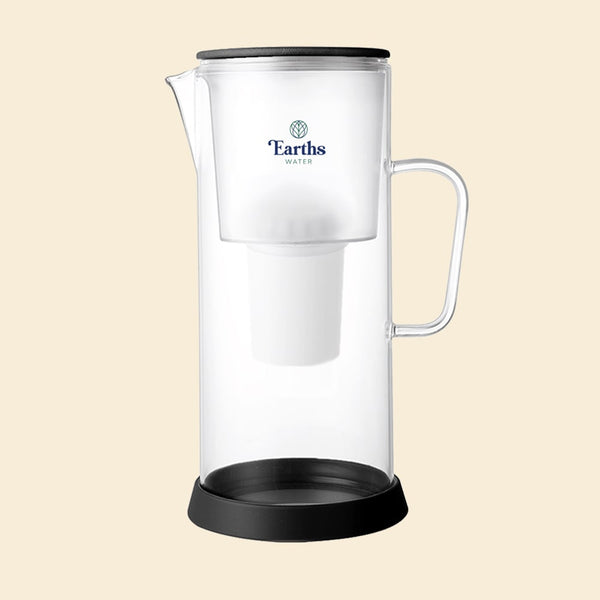
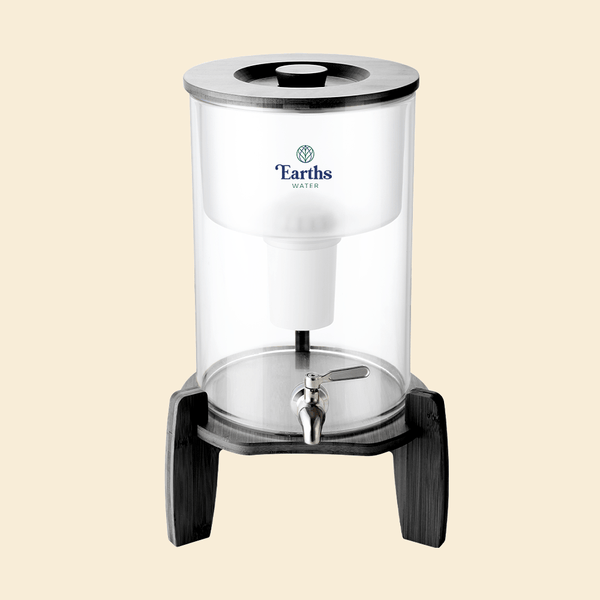
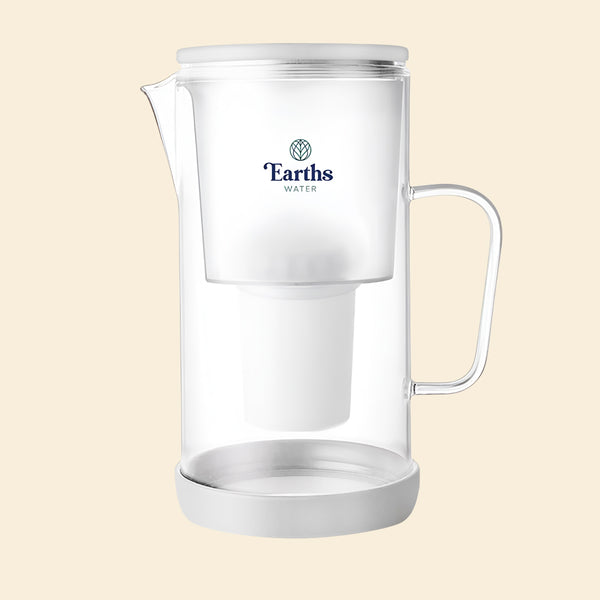
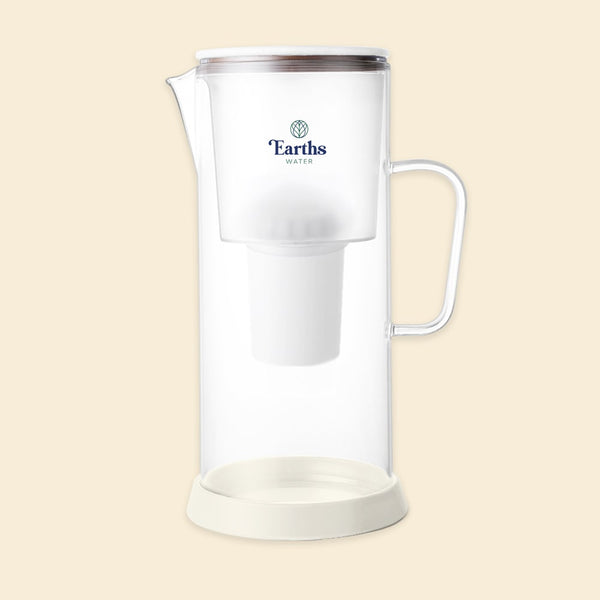
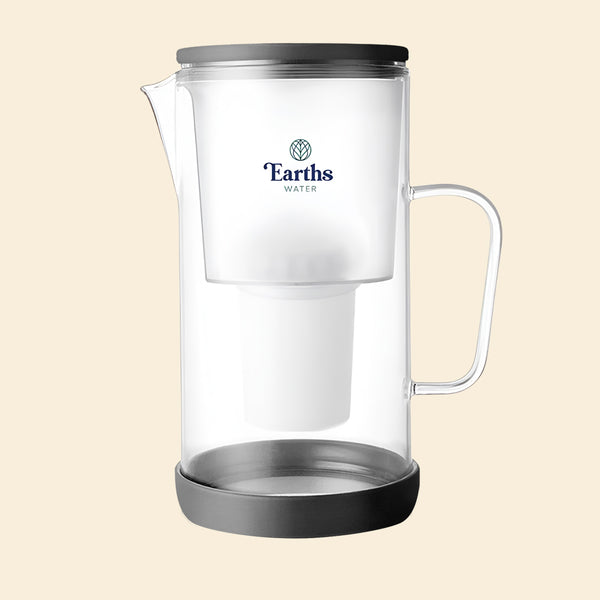
![9L Glass Benchtop Alkaline Water Filter - Eco Acacia [LIMITED EDITION]](http://earthswater.com/cdn/shop/files/ACACIA-BENCHTOP-FRONT-BEIGE_600x600.png?v=1743392740)
